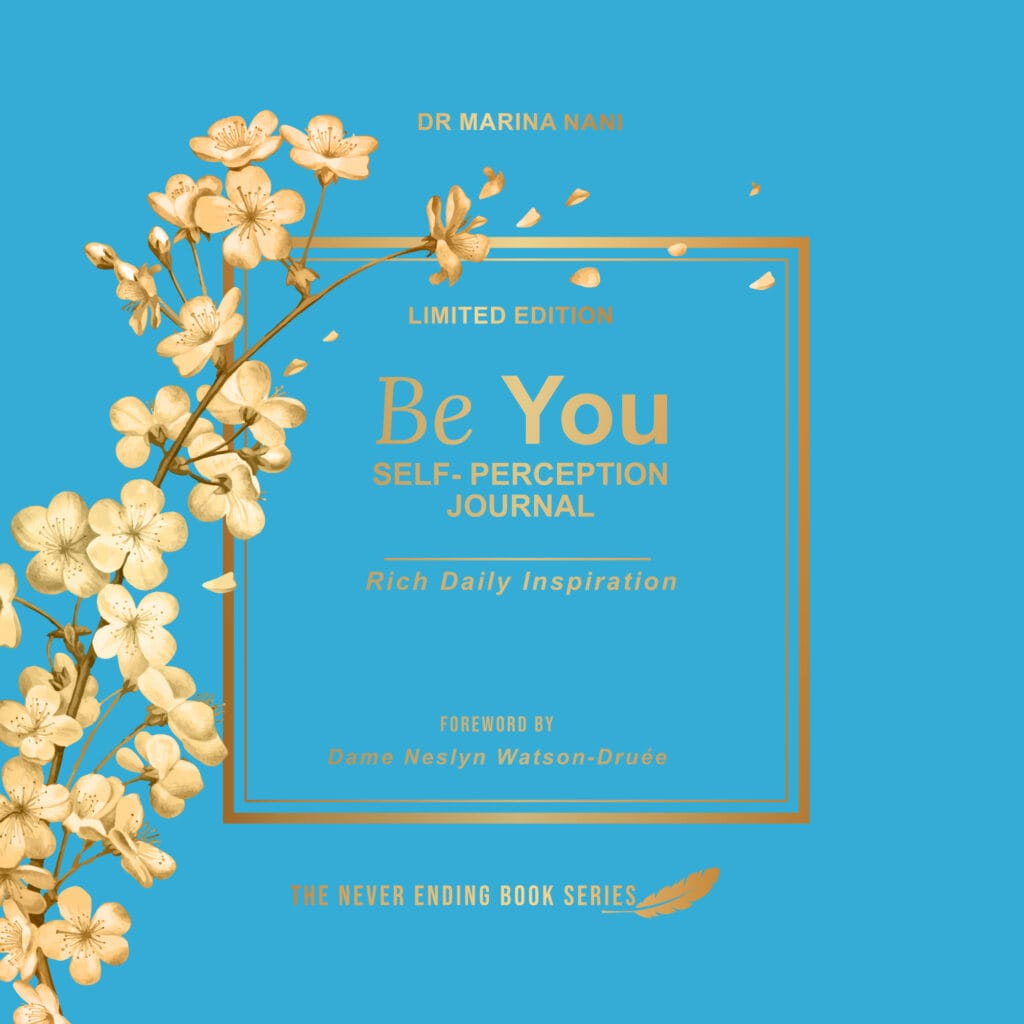Reframing Your Thoughts to Stop Feeling Inadequate
Do you feel inadequate, not good enough? Have you tried silencing the inner critic or pretending those feelings of inadequacy don’t exist? Dr Marina Nani looks into how self perception helps you reframe your thoughts.

Have you ever replayed a mistake in your head so many times it felt like a permanent scar on your self-worth? Or found yourself doubting your abilities, even in moments of success? If you did, you’re not alone. Almost everyone has felt the weight of self-criticism, that small but persistent voice whispering, “You’re not good enough.”
For many of us, these feelings didn’t appear out of nowhere—they were planted long ago, like seeds in the fertile soil of childhood. Maybe it was a teacher’s offhand remark, comparing yourself to an influencer or the pressure to meet impossible expectations. Whatever the source, the echoes of those early moments still follow us into adulthood, shaping the way we see ourselves and our potential.
But here’s the thing: you don’t have to live your life as a prisoner of those old feelings. The story your inner critic tells you isn’t the whole truth. In fact, you have the power to rewrite it, not by denying your feelings, but by shifting your perspective.
This article isn’t about silencing the inner critic or pretending those feelings of inadequacy don’t exist. It’s about reframing them—changing the way you see yourself and your story—so you can move forward with freedom, confidence, and, most importantly, joy. Let’s explore how.
How Reframing Your Thoughts Can Set You Free
We are often our own harshest critics. A slip of the tongue, a missed opportunity, or a less-than-perfect outcome can spiral into an internal monologue of self-doubt. Many of us carry the heavy burden of early feelings of inadequacy, whispered into our hearts by circumstances, comparisons or well-meaning but misguided feedback from others. What if, instead of trying to remove these feelings, you chose to reframe them? What if you saw them not as evidence of your limitations but as stepping stones toward the best version of yourself?
From an early age, many of us internalize subtle messages: “You’re not enough”, “You’ll never succeed” or “You’re doing it wrong.” These feelings become like graffiti etched into the walls of our minds. We often try to paint over them with achievements, validations, or self-help mantras, yet the faint lines remain visible beneath.
The problem with attempting to remove feelings of inadequacy is that it frames your life as a courtroom battle. You gather evidence—awards, recognition and external approval—to convince yourself and others that you’re worthy. But the truth is, you are already enough, simply by being.
Instead of exhausting yourself trying to rewrite your past, consider a different approach: re-imagine. Re- imagining isn’t about denial or blind optimism; it’s about changing the lens through which you see yourself and the world.
Instead of “I failed,” try “I learned something valuable.”
Instead of “I’m not good at this,” try “I’m in the process of improving.”
Instead of “I’m not as successful as others,” try “I’m on my unique journey.”
Reframing gives you the freedom to step out of the shadows of self-judgment and into the light of curiosity and possibility.
When you reframe your thoughts, you shift the narrative. Instead of being trapped by your past, you give yourself permission to grow and evolve. Neuroscience backs this up—our brains are malleable and capable of forming new neural pathways. By consistently choosing empowering thoughts over critical ones, you can literally rewire your brain.
Disproving feelings of inadequacy often reinforces their power. The more you fight them, the more they grow, like weeds in a garden. Instead, consider embracing them as a part of your story. Early feelings of inadequacy are not enemies to vanquish; they are markers of where you started.
Imagine telling yourself: “It’s okay to feel this way; you were doing the best you could”. “These feelings don’t define you; they’re just one chapter in a much larger book”. “You don’t have to prove anything to anyone, least of all yourself”.
By accepting these feelings, you take away their sting. They no longer hold power over you and you can move forward with compassion and clarity.
The most beautiful part of reframing is the joy and freedom it brings. When you’re no longer weighed down by the need to be perfect or “prove” your worth, you can focus on what truly matters: living authentically, embracing your imperfections and finding happiness in the present moment.
Reframing isn’t about pretending that life is always rosy. It’s about recognizing that even in the grayest moments, you have the power to choose your perspective. And often, that small shift is all it takes to turn self-doubt into self-acceptance and critical thoughts into catalysts for growth.
So, next time you catch yourself in the grip of critical thoughts or early feelings of inadequacy, pause. Take a deep breath. Instead of trying to removing them, ask yourself: “Can I see this in a different light?” You might be surprised at how much lighter you feel—and how much brighter the world looks.
Because sometimes, happiness isn’t about changing your circumstances—it’s about changing the way you see them.
The Self-Perception Journal is a guide to reframing your thoughts and reshaping how you view yourself. Through reflective questions and actionable exercises, this journal serves as a personal mirror, helping you understand the layers of your identity, beliefs and inner voice.
Do you want to share your story and inspire our readers ? Know that YOUR EXPERTISE is paving the way for a fairer, happier society.





